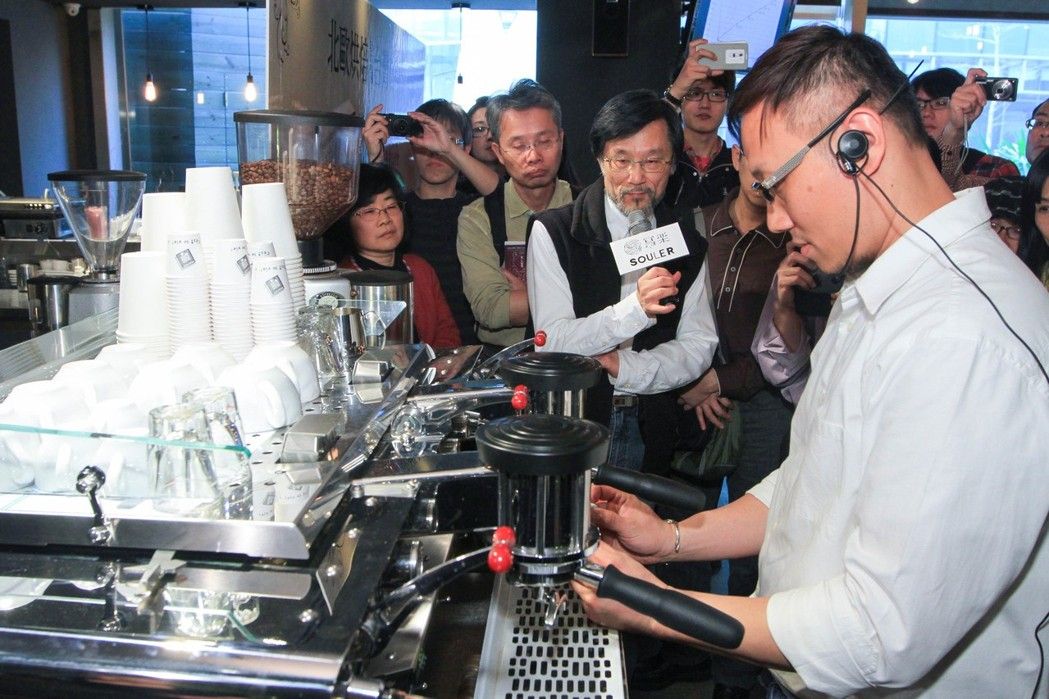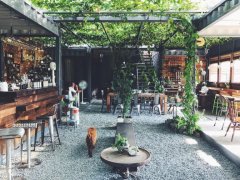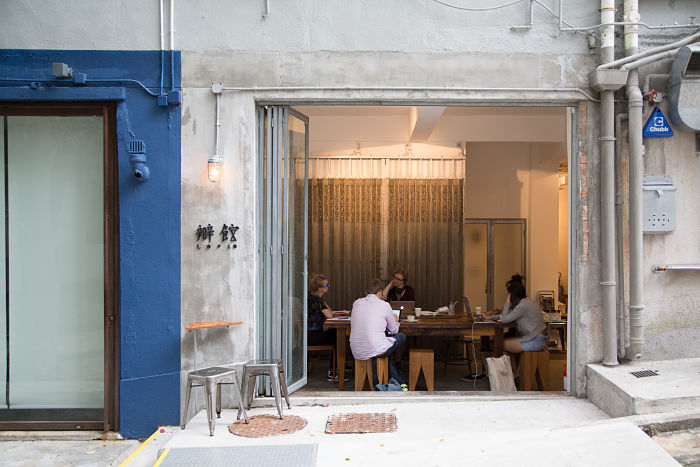The real barista is the professional who touches the hearts of the people-champion barista sharing philosophy.

For professional baristas, please follow the coffee workshop (Wechat official account cafe_style)
According to unofficial statistics, there are 2,000 to 3,000 self-baked cafes in Taiwan, and more than 100 baristas have won the title of champion barista. From tasting a cup of coffee, you can tell the cup test baristas who produce coffee beans from places such as Panama and Africa, and baristas who play with the temperature to make the best coffee. Taiwan's champion barista has become a force in shaping coffee culture.
Champion barista Lim Dong-Won chose to start from the pull flower, so that coffee and a variety of ingredients, drinks cross-border creativity. Lim Dong-Won, who has won five champion barista titles in seven years, said: a good cafe makes it easy for customers to find their favorite coffee, easy to taste and stress-free.
As the vine climbs two or three meters of green tunnel, in the scorching heat, the sun falls to the ground sparsely and mistakenly. The shade of the trees and the coolness of the breeze make the heat barely bearable. This is the No. 2 Park in Lane 113, Section 3 of Minsheng East Road in Taipei City. Walking around the park, the alley is full of specialty cafes. GaBee, which has been open for more than a decade, can be regarded as an "old shop."
A large area of floor-to-ceiling windows, with sufficient daylighting. "the purpose of GaBee is to create a space that people of all ages like and enjoy coffee in this space." Champion barista Lim Dong-Won, founder of GaBee, went on to say: "the cafe is the third space outside the family and company, hoping to make everyone who walks into the cafe feel comfortable."
Italian coffee extraction power, creative taste, ever-changing flowers, skilled skills, Lim Dong-Won is more concerned about so that people who like coffee do not have pressure.
In recent years, Taiwan has kept up with the world trend and popular boutique coffee. The well-known Panamanian manor coffee (Geisha) has led the domestic enkephalics to learn the identification craze of all kinds of manor coffee beans. "A lot of people are already responding, and it's stressful to go to a boutique coffee shop," Lim Dong-Won said.
Pressure leads to estrangement inside and outside the industry.
In the 1990s or even earlier, in well-known coffee shops in Taiwan, such as Bee Coffee next to the Legislative Yuan, and mellow single-product coffee such as Blue Mountain and Manning, consumers needed to identify bitter, sour, sweet and post-rhyme. After 2000, because of the blog "riffraff Tsai" 's online novel Irish Coffee, fancy coffee with alcohol is also popular among African-addicted ethnic groups.
However, coffee is still a daily drink for a small number of people, and there is not so much "professional knowledge" to learn. What consumers need to do is to taste coffee with their current favorite feelings.
"Why force consumers?" When Lim Dong-Won drinks coffee in France, he sees them use colors and patterns, so that customers can choose coffee through sensory intuition and taste preferences. Consumers do not need to remember the names of a bunch of estates. What is more, they do not need to accurately describe the characteristics of the coffee beans. "Don't put pressure on consumers." it is the coffee that Lim Dong-Won most wants to bring to consumers.
In 1997, Lim Dong-Won officially joined the profession, starting from the Personality Cafe. In the same year, Starbucks took the stage and Taiwan's coffee culture began to accelerate its internationalization.
In the face of this wave, what Lim Dong-Won has always wanted to do for Taiwan coffee is to "share" the exchange of space and technology.
In those days, the cafe was a space for a lot of emotional communication. Customers interacted with baristas, not just drinking coffee, booing each other and sharing their feelings. In the third space of that era, it was a space to interact like friends. Lim Dong-Won said that at that time, the personality cafe was very concerned about the interaction with customers, and trying to create a group of regular customers was a prominent business scholar at that time, and it still is now.
The early creation of coffee flowers is not popular, not only in Taiwan, but also in the world, there are not many creations, that is, the basic patterns of love and leaves. "even so, consumers like to go to the bar to see why these patterns come out," because it's a moment that attracts attention.
When Lim Dong-Won joined the profession for about three years, that is, about 2000, Taiwan's coffee industry had just developed. At that time, baristas were very protective of their technology, much like the master-apprentice system in the traditional handicraft industry. Baristas were reluctant to tell outsiders the real details, making the development of domestic coffee technology slow.
At that time, the chef also asked him to watch and learn, but later found that most coffee makers themselves could not explain why, such as how the pattern of drawing flowers was formed. You can only learn by imitation, but you don't understand the principle behind it.
So it made Lim Dong-Won think that only by interacting with others can he make progress. Began to learn from many baristas of the same generation.
Lim Dong-Won believes that in addition to knowledge, coffee needs more time to digest, not just knowing it, but also making it. Like the action of pulling flowers, in order for the body to remember, it takes time to practice over and over again. The muscles of the hands must form a habit, share the skills, and "inspire me to move forward." if you don't want to be surpassed by others, you must keep learning and working hard.
In November 2004, Lim Dong-Won opened the GaBee coffee shop. In December of that year, Lim Dong-Won won the championship of Taiwan Coffee Masters Competition. "Coffee you Mo Potato", which uses Taiwan's authentic sweet potato as its ingredient, won the championship.
"winning the championship has made my barista's path very different," says Lim Dong-Won. The media began to find him and let him write his first book on the art of flower drawing, published by Chinese. "Latte Art Coffee pull: the perfect encounter between Espresso and Milk" gradually turned coffee into a culture through the concept and diversity of sharing coffee.
Although GaBee has been founded for more than a decade, there are many personality cafes in Taiwan, and the popularity of coffee has been rapidly increased by facilitating supermerchants, Lim Dong-Won is often asked what is the difference between a cappuccino and a latte in his speeches. What kind of coffee shop is GaBee?

These problems make Lim Dong-Won feel that there is still a lot of work to be done in the promotion of coffee. As a result, he began to enter "cross-border sharing". Since 2010, through cooperation with TED x Taipei, we have sponsored the coffee at the lecture venue.
Lim Dong-Won is sponsoring the TED x Taipei annual meeting, from offering 600 cups of coffee in the first year, creating 600 patterns a day, to more than 2000 cups in two days, repeated movements to blisters on the little finger, Lim Dong-Won is very happy with this simple "coffee sharing".
For Lim Dong-Won, customers who like coffee should not be put under pressure, and it is very easy to taste coffee. In the aroma and atmosphere of coffee, through sharing with customers, Taiwan's own coffee culture has been gradually shaped.
As a result, GaBee launched "Daily GaBee", with the concept of making a cup of coffee for itself every day, interlacing "washing, tanning, and honey treatment" every month to produce different flavors of coffee, so that consumers can easily taste multi-flavor coffee at home through hand brewing, siphon pot, love pressure, smart filter cup and so on.

Leaving the flavor of each cup of coffee to the customer, this is the beautiful communication that Lim Dong-Won hopes to create.
Important Notice :
前街咖啡 FrontStreet Coffee has moved to new addredd:
FrontStreet Coffee Address: 315,Donghua East Road,GuangZhou
Tel:020 38364473
- Prev

Bad luck? Even the coffee shop can become the super mystery of the secret world & #8968; greenhouse coffee.
Communication of professional baristas Please pay attention to the coffee shop (official Wechat account cafe_style) the coffee shop on the Light Gold Highway is always overcrowded, so it is even more difficult to find a coffee shop with a quiet environment. Now there is a secret place in Sanzhi Mountain, where there is no bus to get there, only by bike or by car. Papa is a coffee shop, hair salon and carpentry studio in Sanzhi.
- Next

I met a man's coffee at the corner of the staircase of "Lof 10".
Exchange of professional baristas Please follow the coffee workshop (Wechat official account cafe_style) and meet a person's coffee around the corner. Since waiting for a person's coffee to be released, the coffee boom has sprung up again. It is not difficult to see the affectionate confessions of pseudo-Wen youths on Facebook. Sip Starbucks coffee, send a profile photo modified by Meitu, and add a series of intermittent words.
Related
- What documents do you need to go through to open a coffee shop? coffee shop coffee shop certificate processing process
- How to purchase Coffee beans in small Cafe how to choose a suitable supplier for domestic Coffee supply Company
- How to drink Starbucks Fragrance White Coffee? how to make Australian White Coffee? what Italian coffee beans are recommended?
- The Story of Flora Coffee: the name of Flora Coffee Bean and the implication of the Flowers on Florna Coffee
- How much does a cup of coffee cost? How much is the profit of a cup of coffee? What is the profit of the coffee shop in a year?
- Yunnan small Coffee, known as "fragrant Coffee", introduces the characteristics of Alpine Arabica Coffee producing areas in Yunnan, China
- 2023 latest Starbucks full menu price list how much is a cup of Starbucks coffee what is better to drink the most popular hot and cold drinks recommended
- Starbucks different kinds of Coffee Price list Starbucks menu 2023 Top Ten Best drinks in Starbucks
- Starbucks Spring praise Comprehensive matching Coffee Bean theme Story Packaging implication and taste description
- The cost of a cup of coffee latte American coffee cost price and selling price

